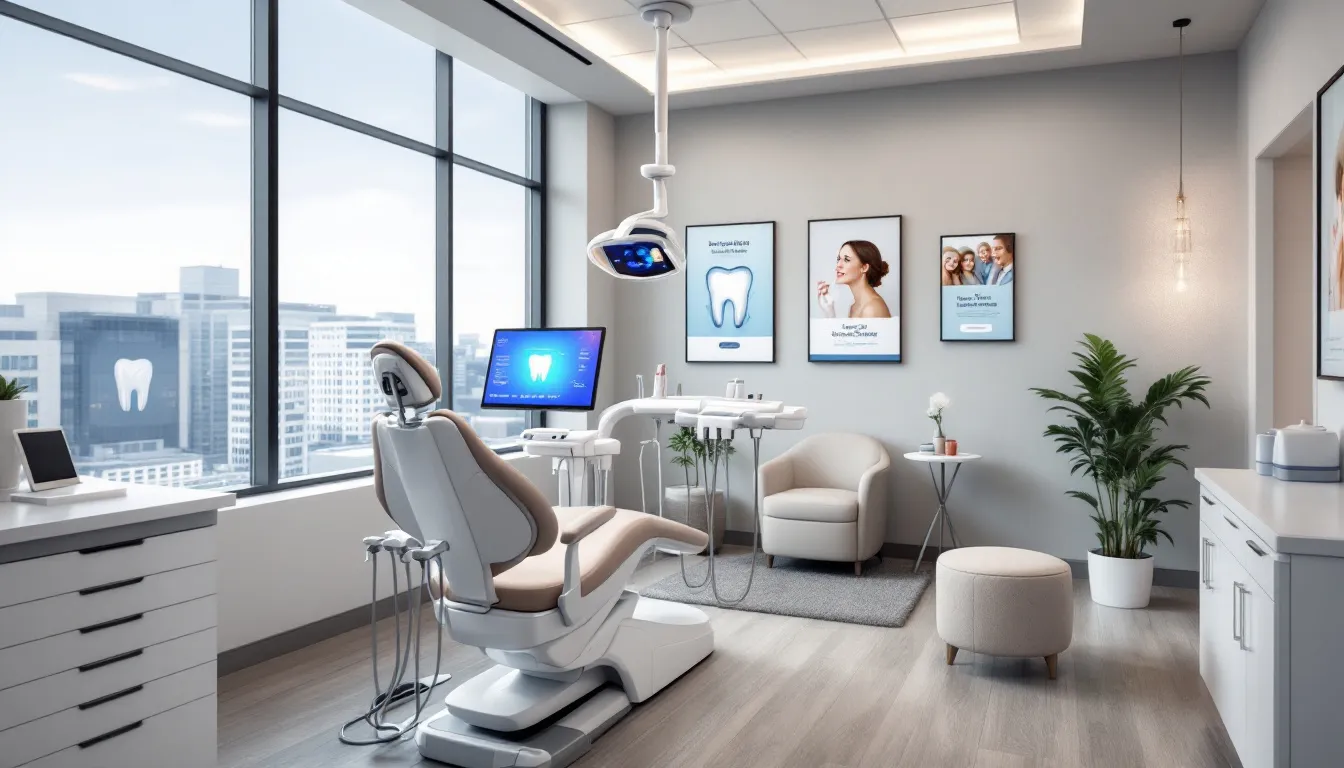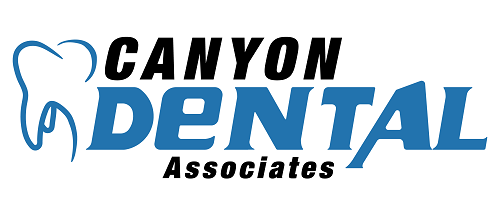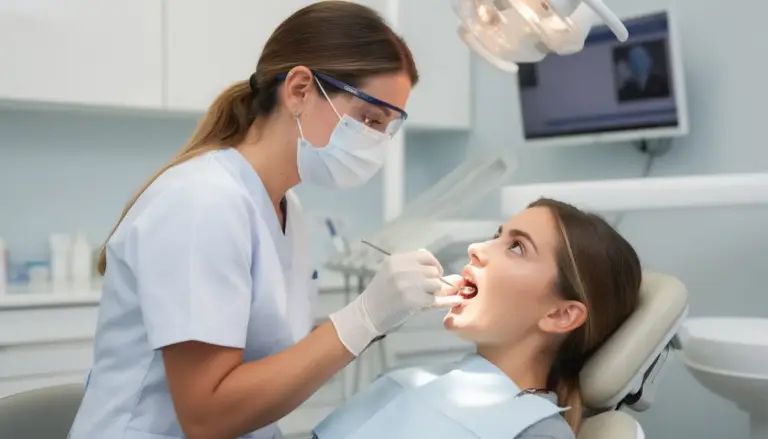When considering what does a dentist do, many people think of routine cleanings and filling cavities. However, modern dentistry encompasses a comprehensive approach to oral health that goes far beyond basic tooth care. Today’s dentists serve as healthcare professionals dedicated to maintaining, diagnosing, preventing, and treating a wide range of oral health conditions that can significantly impact your overall well-being.
At Canyon Dental Associates in Corona, California, we understand that families want to know exactly what dental care involves and how it benefits their long-term health. A licensed dentist combines scientific knowledge, advanced dental training, and ongoing education to provide personalized care that addresses everything from routine preventive care to complex restorative procedures. Dental assistants are also key members of the dental team, supporting dentists and hygienists in providing dental care and assisting with procedures and patient care. This comprehensive guide will help you understand the full scope of what dentists do and how regular dental care can transform your family’s oral health and confidence.
Introduction to Dentistry
Dentistry is a vital branch of healthcare dedicated to preserving and enhancing the health of your teeth, gums, and the surrounding tissues in your mouth. Dentists play a crucial role in preventing and treating a wide range of oral health issues, from gum disease and tooth decay to more severe conditions, such as oral cancer. By focusing on both the prevention and early detection of oral diseases, dentistry supports not only your oral health but also your overall well-being.
Regular dental visits to a licensed dentist are essential for maintaining healthy teeth and gums. The American Dental Association recommends routine cleanings and check-ups with a general dentist to help prevent common problems such as cavities and gum disease. These regular appointments allow for early detection of oral health issues, making it possible to address concerns before they become more serious. By prioritizing preventive care and maintaining a consistent schedule of routine cleanings, you can protect your smile and support your overall health for years to come.
Education and Training of Dentists
Becoming a dentist requires a strong educational foundation and a commitment to lifelong learning. The journey begins with earning a bachelor’s degree, often in a science-related field, which provides the groundwork for advanced study. Prospective dentists must then attend dental school, where they receive comprehensive training in dental medicine and dental surgery. Dental schools offer a blend of classroom instruction and hands-on clinical experience, covering essential skills in general dentistry such as routine cleanings, fillings, and root canals.
After completing dental school, graduates earn either a Doctor of Dental Surgery (DDS) or Doctor of Dental Medicine (DMD) degree. To practice dentistry, they must pass the Dental Admission Test (DAT) and obtain a dental license, ensuring they meet rigorous standards for patient care and safety. Some dentists choose to further their expertise through advanced dental training in a postdoctoral program, specializing in areas like pediatric dentistry, orthodontics, or oral and maxillofacial surgery. This advanced training allows dentists to offer a broader range of dental procedures and address more complex oral health needs.
Types of Dental Specialties
Dentistry encompasses a variety of dental specialties, each focused on specific aspects of oral health and patient care. Pediatric dentists, for example, specialize in caring for children’s teeth and gums, creating positive dental experiences and addressing unique oral health issues that arise during childhood. Oral and maxillofacial surgeons are experts in performing surgical procedures involving the mouth, jaw, and face, including complex extractions and maxillofacial surgery.
Other dental specialists include orthodontists, who correct misaligned teeth and jaws; periodontists, who treat gum disease and promote gum health; and endodontists, who specialize in root canal therapy. Cosmetic dentists enhance the appearance of teeth through procedures like teeth whitening and veneers, helping patients achieve brighter, more confident smiles. Public health dentists work to improve oral health at the community level. At the same time, dental hygienists play a key role in routine cleanings and preventative care, supporting both dentists and patients in maintaining optimal oral health. Each specialty contributes to the broad field of dentistry, ensuring that patients receive the proper care for their individual needs.
Core Responsibilities of a Dentist
The primary role of a dentist extends well beyond what many patients initially expect. After completing dental school and earning their doctor of dental surgery or doctor of dental medicine degree, dentists must pass the dental admission test and obtain a dental license to practice dentistry legally. This extensive education prepares them to handle the broad range of responsibilities that define modern dental care.
Comprehensive Examination and Diagnosis
Every visit begins with thorough clinical exams where dentists examine teeth, gums, and surrounding soft tissues to identify potential oral health issues. Using advanced diagnostic tools like digital radiography and intraoral cameras, dentists can detect problems in their earliest stages—often before patients experience any symptoms. This early detection approach is crucial because it allows dentists to treat problems before they develop into more serious oral health conditions.
Treatment Planning and Patient Education
Many dentists spend significant time developing personalized treatment plans that address each patient’s unique needs, lifestyle, and health goals. This process involves educating patients about their oral health conditions, explaining treatment options, and helping families make informed decisions about their dental care. Patient education forms a cornerstone of preventive dentistry, empowering individuals to maintain optimal oral health between visits.
Technology Integration and Modern Techniques
Today’s dentists utilize cutting-edge technology to ensure accurate diagnoses and comfortable treatments. From digital imaging that reduces radiation exposure to same-day crown fabrication, these technological advances make dental procedures more efficient and patient-friendly. This commitment to modern dentistry particularly benefits families in Corona and surrounding communities who value both convenience and quality care.
Preventive Dental Services for Oral Health
Preventive care represents the foundation of modern dentistry, focusing on maintaining oral health and preventing dental diseases before they develop. Research consistently shows that patients who receive regular preventive care experience significantly better long-term outcomes and lower overall dental costs.
Professional Teeth Cleanings
Routine cleanings performed by dental hygienists and dentists remove plaque and tartar buildup that daily brushing and flossing cannot eliminate. These routine dental care appointments typically occur every six months and play a crucial role in preventing gum disease and tooth decay. During cleanings, dental professionals also polish teeth and may apply fluoride treatments to strengthen tooth enamel. Dental professionals wear safety glasses during these procedures to protect their eyes from debris and splashes.
Comprehensive Oral Examinations
Regular dental visits include thorough examinations where dentists assess the health of teeth and gums, check for signs of oral cancer, and evaluate jaw function. These clinical exams often incorporate digital X-rays to visualize areas between teeth and below the gum line that aren’t visible during visual inspection. Early detection through these examinations can prevent minor issues from becoming major dental problems.
Fluoride Treatments and Dental Sealants
Fluoride treatments provide additional protection against tooth decay, particularly beneficial for children and adults at higher risk for cavities. Dental sealants, thin protective coatings applied to the chewing surfaces of back teeth, can reduce cavity risk by up to 80% in some studies. These preventative treatments are especially valuable for families, as they help establish healthy habits that benefit patients throughout their lifetime.

Oral Cancer Screenings
Regular oral cancer screenings represent a critical component of preventive dental care. Dentists are trained to identify early signs of oral cancer, which has a five-year survival rate exceeding 80% when detected early. These screenings involve examining oral tissues for unusual changes, lumps, or discolorations that might indicate potential problems.
Restorative Dental Treatments
When dental problems do occur, restorative procedures help restore both function and appearance to damaged teeth. Modern restorative dentistry emphasizes conservative treatments that preserve as much natural tooth structure as possible, providing durable and long-lasting results.
Dental Fillings and Cavity Treatment
When dentists detect tooth decay, they remove the damaged portion and fill cavities with tooth-colored materials that blend naturally with existing teeth. Modern composite materials provide excellent durability while maintaining a natural appearance, making them ideal for both front and back teeth. This approach to treating cavities helps patients retain their confident smiles while addressing oral health issues effectively.
Crown and Bridge Restorations
For teeth with extensive damage or large cavities, dental crowns provide comprehensive protection and restoration. These custom-fabricated restorations cover the entire visible portion of a tooth, restoring both strength and appearance. Dental bridges use crowns to replace missing teeth by anchoring artificial teeth to adjacent healthy teeth, restoring full chewing function, and preventing remaining teeth from shifting.
Root Canal Therapy
Despite common misconceptions, root canals are highly effective procedures that save infected teeth and eliminate pain. When performed by skilled general dentists, these treatments have high success rates and allow patients to keep their natural teeth rather than requiring extractions. Modern techniques and local anesthesia ensure patient comfort throughout the procedure. It is essential to follow your dentist’s post-dental procedure care instructions after a root canal to ensure proper healing and maintain your oral health.
Emergency Dental Care
Dental emergencies can occur unexpectedly, from severe toothaches to chipped tooth incidents or loose teeth due to trauma. Emergency dental care addresses urgent situations promptly, often providing same-day treatment to manage pain and prevent complications. Having access to emergency care helps families feel confident knowing their dental needs will be addressed quickly when problems arise.
Cosmetic Dental Services
Cosmetic dentistry focuses on improving the appearance of teeth and smiles, often providing significant psychological benefits alongside aesthetic improvements. Research indicates that smile appearance significantly impacts self-perceived attractiveness and social confidence, making cosmetic treatments valuable investments in overall well-being.
Professional Teeth Whitening
Professional teeth whitening offers the safest and most effective approach to brightening smiles. Unlike over-the-counter whitening agents, professional treatments are supervised by dentists who can customize the process for optimal results while minimizing sensitivity. In-office whitening procedures can dramatically improve tooth color in a single appointment, while take-home systems provide gradual whitening with professional guidance.
Dental Veneers and Cosmetic Bonding
Dental veneers, thin shells of porcelain or composite material, can correct a wide range of cosmetic concerns, including chips, cracks, discoloration, and minor alignment issues. These conservative treatments require minimal tooth preparation while providing dramatic aesthetic improvements. Tooth bonding offers a more economical option for minor cosmetic improvements, using tooth-colored materials to reshape and repair teeth.

Comprehensive Smile Makeovers
For patients seeking dramatic improvements, smile makeovers combine multiple cosmetic treatments to achieve a comprehensive aesthetic transformation. These treatment plans might include whitening, veneers, and minor orthodontic adjustments to create balanced, attractive smiles that boost confidence and self-esteem.
Family Dentistry Benefits
Family dentistry offers comprehensive oral healthcare for patients of all ages, from toddlers experiencing their first dental visit to seniors managing age-related oral health challenges. This approach provides numerous advantages for busy families in Corona, California, and surrounding communities.
Comprehensive Care Across All Ages
Family dentists receive training to address the unique needs of different age groups, from pediatric dentistry considerations for young children to the complex oral health conditions that may affect older adults. This comprehensive approach means families can receive consistent, coordinated care without needing to visit multiple specialists for routine treatments.
Convenience and Continuity
Scheduling appointments for entire families at one location saves time and ensures consistent care standards for the whole family. Family dentists develop long-term relationships with patients, allowing them to monitor oral health changes over time and adjust treatment approaches as needed. This continuity of care is particularly beneficial for children, who become comfortable with their dental team and develop positive associations with dental visits.
Monitoring Oral Development
Family dentists track oral development in children and teenagers, identifying potential orthodontic needs early and monitoring the emergence of permanent teeth. This developmental oversight helps ensure proper oral function and can prevent more complex problems from developing later.

Establishing Healthy Habits
By providing care for entire families, dentists can reinforce healthy oral hygiene habits and dietary choices that benefit all family members. Children learn from their parents’ examples, making family-focused dental care a practical approach for establishing lifelong healthy habits.
Work Environment of Dentists
Dentists work in a variety of settings, including private practices, dental clinics, and hospitals. Many dentists own their own practices, while others collaborate with other dentists and dental professionals as part of a larger team. The dental work environment demands attention to detail, excellent manual dexterity, and strong communication skills to ensure patients feel comfortable and informed throughout their care.
Staying current with advancements in dentistry is essential, as new technologies and techniques—such as dental implants and laser dentistry—continue to improve patient outcomes. A typical day for a dentist may involve performing routine cleanings, examining patients for oral health issues, and providing preventive care, such as fluoride treatments and dental sealants. By working closely with dental hygienists and other team members, dentists can deliver comprehensive care that addresses both immediate concerns and long-term oral health.
When to Visit Your Dentist
Understanding when to seek dental care helps families maintain optimal oral health while addressing problems before they become serious. Different situations call for various types of dental visits, from routine maintenance to urgent care.
Regular Preventive Checkups
The American Dental Association recommends regular dental visits every six months for most patients. However, some individuals may benefit from more frequent visits based on their risk factors for dental diseases. These regular checkups allow for early detection of problems and consistent preventive care that can prevent major dental issues from developing.
Signs That Require Prompt Attention
Specific symptoms indicate the need for immediate dental care, including persistent tooth pain, swelling, bleeding gums, or loose teeth. Additionally, patients should schedule appointments if they notice changes in their bite, jaw pain, or unusual spots or growths in their mouth. Prompt attention to these warning signs can prevent minor issues from becoming severe oral health conditions.
Emergency Situations
Dental emergencies require immediate attention and may include severe toothaches, knocked-out teeth, broken dental restorations, or facial trauma affecting teeth. Many dental practices, including those serving the Corona area, provide emergency services to address urgent situations promptly and effectively. Some emergencies, such as impacted teeth or severe facial trauma, may require referral for oral surgery.
Preventive Timing for Life Changes
Certain life events warrant dental visits even outside the regular schedule. These include pregnancy, starting new medications that might affect oral health, or beginning medical treatments that could impact oral health. Proactive dental care during these transitions helps maintain oral health during periods of change.
Patient Comfort and Modern Technology
Modern dental practices prioritize patient comfort through gentle techniques, advanced technology, and anxiety management approaches. These improvements have transformed the dental experience, making it more comfortable and efficient for patients of all ages.
Advanced Diagnostic Technology
Digital imaging, including digital X-rays and intraoral cameras, provides detailed views of oral structures while minimizing radiation exposure. These technologies allow dentists to diagnose problems more accurately and share findings with patients through clear visual explanations. The use of modern diagnostic tools enhances both the quality of treatment and patient understanding.
Comfort-Focused Treatment Approaches
Today’s dental procedures emphasize patient comfort through improved techniques, better pain management, and modern equipment designed for patient comfort and safety. Local anesthesia techniques have improved significantly, and many procedures that once caused discomfort can now be performed with minimal or no discomfort.

Anxiety Management and Communication
Dental anxiety affects approximately 36% of the population to some degree, making anxiety management a crucial component of modern dental care. Effective communication, patient education, and gentle approaches help patients feel more comfortable and confident about their dental treatment. Many patients find that understanding their treatment reduces anxiety significantly.
Flexible Scheduling and Family Accommodations
Modern dental practices recognize the importance of accommodating busy family schedules and lifestyle needs. Flexible scheduling options, including early morning and evening appointments, help families maintain consistent dental care without disrupting work or school schedules.
The comprehensive nature of modern dentistry means that what dentists do extends far beyond basic tooth care. From preventive services that maintain oral health to advanced restorative procedures that address complex problems, today’s dental professionals provide care that impacts both oral health and overall quality of life. Regular dental care offers quantifiable benefits, including reduced long-term costs, better oral health outcomes, and increased confidence.
For families in Corona, California, and surrounding communities, establishing a relationship with a comprehensive dental practice provides peace of mind and convenient access to the full range of dental services. Whether you need routine preventive care, restorative treatments, or emergency dental services, modern dentistry offers solutions that prioritize comfort, effectiveness, and long-term health.
If you’re looking for comprehensive dental care that combines modern technology with gentle, family-focused treatment, we invite you to schedule an appointment with Canyon Dental Associates in Corona, California. Our experienced team is committed to helping your family achieve and maintain optimal oral health through personalized, comfortable dental care that fits your lifestyle and needs.
Conclusion and Next Steps
Dentistry is a dynamic and rewarding profession that blends scientific knowledge, clinical experience, and compassionate care. Whether you’re considering a career in dentistry or want to maintain a healthy smile, it’s essential to visit a dentist regularly for routine cleanings, check-ups, and preventative care. Understanding the different dental specialties and the educational path to becoming a dentist can help you make informed decisions about your oral health care.
To achieve optimal oral health and a beautiful smile, ask your licensed dentist about preventative care options such as teeth cleanings, as well as cosmetic dentistry treatments like teeth whitening. By prioritizing regular dental visits and working with a skilled dental team, you can protect your teeth, prevent oral health issues, and support your overall well-being for years to come.


